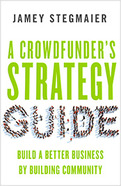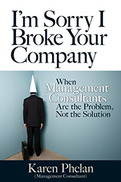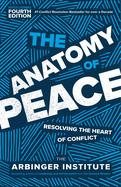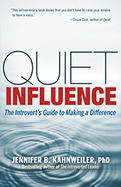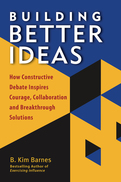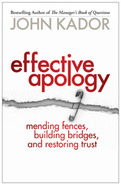Jamey Stegmaier knows crowdfunding. He's a veteran of seven successful Kickstarter campaigns (and counting) that have raised over $3.2 million, and he's the proprietor of the widely read Kickstarter Lessons blog. In this book he offers a comprehensive guide to crowdfunding, demonstrating that it can be a powerful way for entrepreneurs to grow their businesses by building community and putting their customers first.
This book includes over forty stories of inspiring successes and sobering disasters. Stegmaier uses these examples to demonstrate how to (and how not to) prepare for a campaign, grow a fan base, structure a pitch, find new backers, and execute many other crucially important “nuts and bolts” elements of a successful crowdfunding project.
But Stegmaier emphasizes that the benefits of crowdfunding are much more about the “crowd” than the “funding.” He shows that if you treat your backers as people, not pocketbooks—communicate regularly and transparently with them, ask their opinions, attend to their needs—they'll become advocates as well as funders, exponentially increasing your project's chances of succeeding.
What if conflicts at home, at work, and in the world stem from the same root cause? What if we systematically misunderstand that cause? And what if, as a result, we unwittingly perpetuate the very problems we think we are trying to solve?
The Anatomy of Peace uses a fictional story of an Arab and a Jew—both of whom lost their fathers at the hands of the other's cousins—to powerfully show readers the way to transform conflict. We learn how they come together, how they help parents and children come together, and how we too can find our way out of the personal, professional, and social conflicts that weigh us down.
The fourth edition includes revisions and new materials and resources that increase its relevance and usefulness at a time of deeply entrenched divisions throughout society. Additionally, it includes new detailed discussions of the pattern of dehumanization that lies at the heart of today's most pressing struggles with prejudice and discrimination—challenges that cannot be solved until the origins of bias and discrimination are properly understood and addressed. The new edition is a unique and vital resource for combatting racism and prejudice in their many manifestations.
2013
- The first book to identify six unique strengths that can make introverts powerful influencers
- Includes quizzes, exercises, and worksheets for putting quiet influencer methods into practice on a daily basis
- Features interviews with and examples of real-life quiet influencers
- For press release, click here
- Companion online product: Quiet Influence Quotient (QIQ) Self-Assessment
Introverts may feel powerless in a world where extroverts seem to rule, but theres more than one way to have some sway. As Jennifer Kahnweiler proves in this much-needed book, introverts can be highly effective influencers when, instead of trying to act like extroverts, they use their natural strengths. Kahnweiler shows how you can use those strengths to challenge the status quo, provoke new ways of thinking, effect change, and inspire others to move forward.
Kahnweiler identifies six unique strengths introverts have:
- Taking Quiet Time: The periods of solitude that introverts crave provide them with a powerful source of creativity and self-awareness.
- Preparation: Careful preparation, which makes introverts feel more comfortable, also makes them very knowledgeable and able to anticipate objections.
- Writing: Introverts preference for writing over speaking enables them to influence others through deep, authentic, well-developed arguments.
- Engaged Listening: Introverts are great listenerstheyd rather listen than talkwhich is a crucial skill for establishing rapport and mutual understanding.
- Focused Conversation: Introverts dont like small talk, but they excel at the serious, purpose-driven, one-on-one interactions vital for winning people over.
- Thoughtful Use of Social Media: Oversharing doesnt appeal to introverts online any more than it does offline, so they naturally use social media in a thoughtful, and more effective, way.
Kahnweiler includes a Quiet Influence Quotient quiz to measure how well youre using these six strengths now. Then, through questions, tools, exercises, and real-world examples, she helps you increase your mastery of these strengths. Quiet Influence is the must-have guide to deeper insight and greater impact that introverts have been waiting for and that extroverts can learn from.
In too many organizations, great ideas and unusual solutions can be suppressed, ignored, or attacked. Departments defend their turf, and people choose what is safe over what is better. Bad ideas move forward and good ideas die, which can lead to disastrous results—financial or otherwise.
Luckily, there is a workable path out of this dysfunction. Kim Barnes's process of constructive debate shows how to establish conditions that encourage the free exchange, discussion, and development of ideas and eliminate conditions that prevent potentially useful ideas from getting heard. By using this tested model, any company or team can improve outcomes and bring out everyone's best ideas.
A constructive debate is one in which a diverse group of individuals can express their ideas, engage others in building on and improving them, explore ideas deeply, and challenge one another's positions in a fair and productive way. In this book, you'll learn a set of behaviors you can model and encourage and a process you can facilitate, lead, or support your client in leading. In this time, where opinions can be tribal and differences can lead to unconstructive conflict, it's important to find ways to build robust ideas through a thoughtful, fair, and inclusive approach.
2009
Effective Apology challenges you to think about the fundamental value of an apology, to you and the receiver, as it explores in detail the key dimensions—what Kador calls the Five Rs—of a wholehearted apology, one that heals and renews. Kador also offers advice on how to accept or reject an apology, ten apology dos and don'ts, and a quiz to test your Apology Quotient.
The willingness to apologize signals strength, character, and integrity—real leadership is impossible without it. With over 70 examples of the good, the bad, and the ineffective apology in action, no other book combines such a practical, how-to approach with a rich analysis of what it takes to make apology work in the real world.


